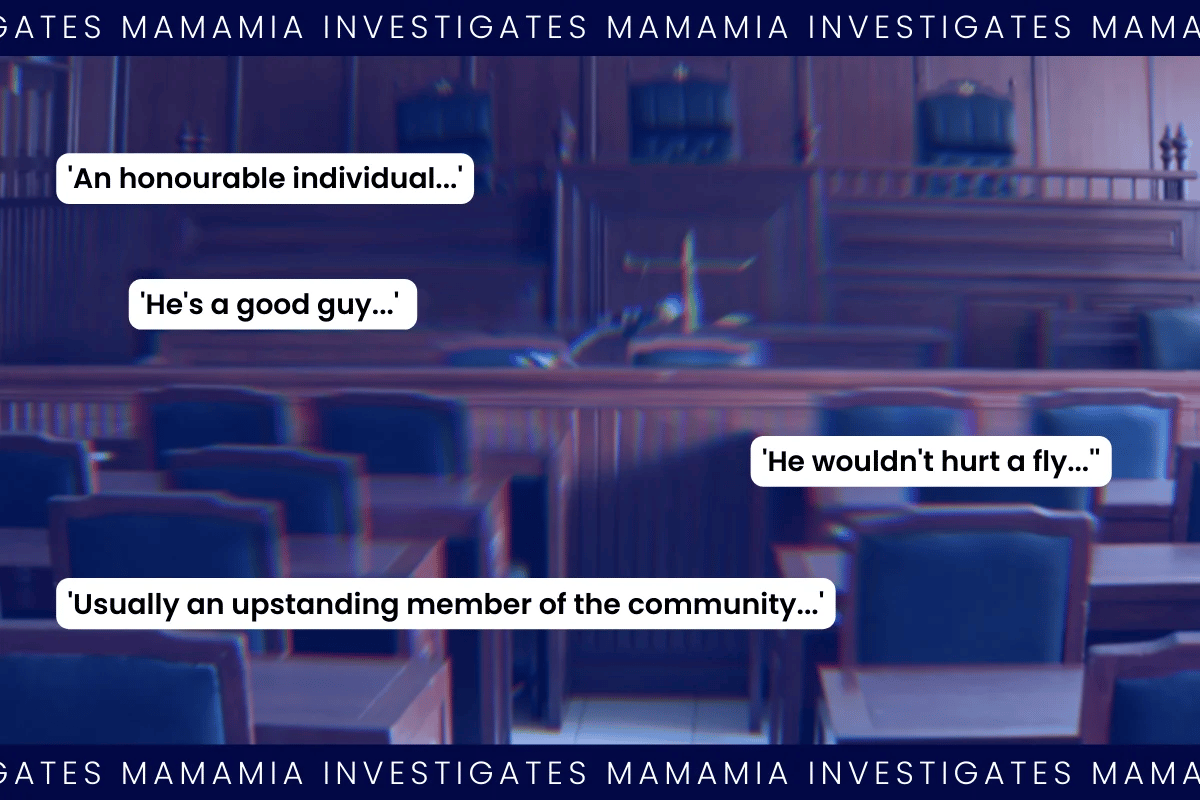
Content warning: This story includes mentions of child sexual abuse, domestic violence, and sexual assault that may be distressing to some readers.
A character reference.
It's a simple piece of paper that plays a crucial role in our justice system and offers those on trial the opportunity to argue they are a person normally of sound character. We've seen it play out in the Danny Masterson case recently, when his co-stars Ashton Kutcher and Mila Kunis wrote character references for a man convicted of rape.
But for many victim-survivors, they say it can feel like a "kick in the guts" to watch someone vouch for a convicted perpetrator. And they say it can hurt even more if that character reference plays a mitigating role in a reduced sentence length for the perpetrator.
One recent court case shone a light on the use of character references.
It was regarding the charges against Jeffrey "Joffa" Corfe, often known as the 'Collingwood superfan' in the media.
Corfe pleaded guilty to sexually abusing a then 14-year-old boy in 2005. In late February, he was sentenced to a 12-month jail term, but it was wholly suspended for two years. This means he avoided prison, but if he steps out of line in the next two years, he risks being locked up.
He will be a registered sex offender for 15 years.
Watch: Breaking the silence — reporting historical sexual assault. Post continues below.

Top Comments
Character references should really only speak to the possibility of the offender's ownership of their offense/s, their offer of compensation to the victim/survivor and/or society & commitments to rehabilitation. Some sort of restorative Justice approach may be useful for some.
If a man is a rapist and has raped several women, why is the word of his male friends worth anything? He's not a threat to them, they wouldn't have seen that side of him.